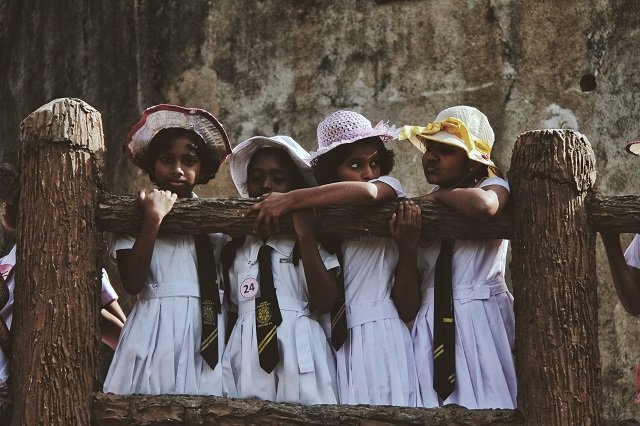Putting it crudely, if everyone around us is going broke, then it simultaneously follows someone somewhere must be minting money, getting rich out of our misery.
by Victor Cherubim
While the shock caused by the COVID-19 has generated ripples across the global economies leaving failing industries, job losses and poverty of spirit, and in wealth in its wake, it must not be forgotten that the pandemic has prompted surging interest in medical research, in health diets, in adventure tourism, in thinking out of the box, in skills sets as well as, our export potential.
It has brought out newfound resilience in many people and in some cases led to increased feelings of social support, a welcome feature.
Putting it crudely, if everyone around us is going broke, then it simultaneously follows someone somewhere must be minting money, getting rich out of our misery.
While we in Sri Lanka are hitting our heads, both in our Parliament concentrating on the 20th Amendment to our Constitution, and outside trying to curtail the spread of the virus to our neighbouring cities and towns, our export growth is in the region of US$11 billion with imports of US$19 billion. In recent years large trade deficits have been offset or reduced substantially by our tourist earning and overseas workers’ remittances. Both these have reduced appreciably owing to the global pandemic. This makes our reduction of our borrowings, our debt more difficult to manage.
A portal of possibilities
It was refreshing to read the other day that during the pandemic export manufacturing in Sri Lanka has diversified in quick succession to market conditions, into making rubber gloves, surgical gloves and Personal Protection Equipment (PPE) which is in great demand the world over. This sudden take up has consequently made a valuable contribution to our export trade.
Of course, we cannot change the balance of payments deficit with a few months. The point that I am belabouring, is that we are not sitting on our back side and crying about our predicament.
I may also state that the world too is changing to face the new reality of life.
This Coronavirus pandemic is at one and the same time a blessing in disguise in many fields of endeavour.
What is happening to the economic recovery while battling the pandemic?
We are now facing a vastly different business environment and a much-changed workplace. We are simultaneously seeing a world looking for a turbo-charged recovery, that may be, or rather will be driven, not only by technology and green issues, but with new uses of old ideas.
One illustration of the latter is what we call “thinking out of the box”.
To appreciate where we are now, we must look at where we have been before. We will find that our ability to accept reality will make us appreciate our present situation all the better.
Specialisation was the key word of the past, whether in the field of education, medicine, or engineering. Parents always wanted their children to be trained in the professions, either as doctors, engineers, or lawyers. Today, it is about shifting their focus from a deep technical, narrow service provision to a much more diverse, integrated wider offering of disciplines, education, and skill sets. Put it another way, it is shifting from product orientation to solution orientation. Life in the new Coronavirus Age is increasingly needing workers and executives with flexibility, agility, a true understanding of the wider business and the ability to operate beyond the very narrow focus of their specialisation or expertise.
Diversity is the name of the game in this Age?
How many parents in Sri Lanka have realised a salient fact in the life of their young school going children? Did they note that young students have a relationship gap in communication with their elders in understandable ways? There is an innate fear of being ostracised. Parents are wanting a good life naturally for their children, they keep boosting their morale with tuition lessons and wanting them all to be professionally qualified. The market for employability today thinks otherwise.
As Artificial Intelligence (AI) is key and diversity of knowledge commanding respect in the jobs market, it is the human aspects of interpretation, judgment and making sense and being able to assess and respond to any given situation in any workplace, that commands respect and not rote learning that matters.
This Coronavirus Age has caused many to “think out of the box” and that is what is required in today’s world. We must find new uses for old ideas. We must reshape our strategies to meet the exigencies of our age. This is not only the basis of all future human endeavour but does not exclude the animal kingdom. The best example is what is being asked of the diverse aspects and abilities in “other beings”.
We are told that dogs deemed unsuitable for use as “Guide Dogs for the Blind” in Britain have been put to other use. Many of these dogs due to their high energy and love of sniffing have found new employment. As part of an elite canine team, they are now being trained to smell COVID-19.
Researchers state that a dog’s nose has 300 million receptors, compared with 5 million for a human. Research at Hanover University, Germany, has found that dogs can detect coronavirus with 94% accuracy in a fast and non-invasive way. It is found that dogs can identify the odour of Covid-19 even among people displaying no symptoms, making them a valuable first line of defence against the virus spread. A project is now underway at Milton Keynes, Buckinghamshire, for the COVID-19 Detection Dog project. This is in collaboration between Medical Detection Dogs, the London School of Hygiene and Tropical Medicine and Durham University.
Perhaps, one day we in Sri Lanka, can train our Guide and Sniffer Dogs to perform this service to supplement our Track and Trace procedure to control the spread of the pandemic.















Post a Comment